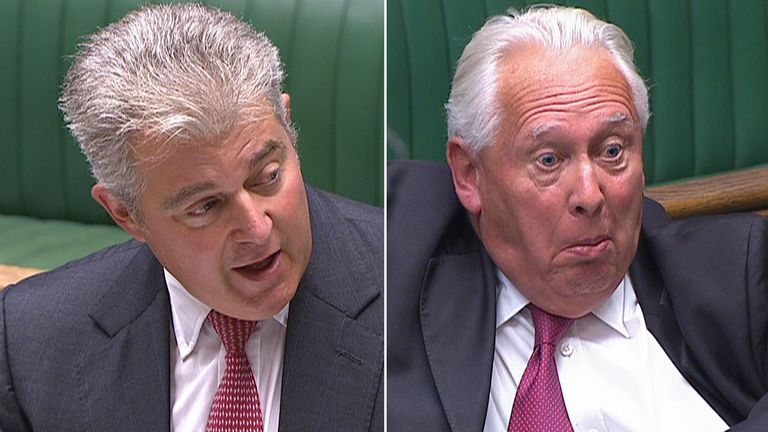Ministers are planning to override parts of the Brexit deal with a bill that could be “inconsistent” with it.
The controversial Internal Market Bill was published after the government admitted yesterday it wanted to potentially “break international law”.
It is intended to distribute powers being brought back from Brussels to Westminster and the devolved administrations in Scotland, Wales and Northern Ireland.
But key components may contradict the Withdrawal Agreement passed by parliament last year, by letting ministers hand themselves the power to determine rules on state aid and goods travelling between Northern Ireland and Great Britain.
The draft legislation says: “Certain provisions to have effect notwithstanding inconsistency or incompatibility with international or other domestic law.”
It adds any parts of the Brexit deal which contradict it “cease to be recognised and available in domestic law”.
And it contains an extraordinary list of precedents the new law would override, including “any other legislation, convention or rule of international or domestic law whatsoever, including any order, judgement or decision of the Europe Court or of any other court or tribunal”.
Details were reported earlier this week in the Financial Times, drawing sharp criticism from Tory MPs led by former prime minister Theresa May, who asked how other countries would be sure the UK “can be trusted to abide by the legal obligations of the agreements it signs”.
Soon after the plan was finalised, EU Council President Ursulla Von-der Leyen condemned it in stern terms.
“Very concerned about announcements from the British government on its intentions to breach the withdrawal agreement,” she tweeted.
“This would break international law and undermines trust. Pacta sunt servanda = the foundation of prosperous future relations.”
Charles Michel, president of the EU Council, added: “Breaking international law is not acceptable and does not create the confidence we need to build our future relationship.”
Similar angry reactions also emerged back home, with Welsh First Minister Mark Drakeford calling it a “grim day for those that believe in the UK”, given the bill “favours those” who want to see it “broken up”.
And former attorney general Dominic Grieve, who was booted out of the Conservatives for opposing a no-deal Brexit, told Sky News: “It will have very serious representational consequences. I could almost weep over it.”
A senior Welsh Conservative, shadow counsel general David Melding, also quit his role on the frontbench saying he was “gravely aggregated” by the fresh “dangers facing our 313-year-old union”.
It comes as trade deal talks enter a crucial week, with Brussels’ chief Brexit negotiator Michel Barnier arriving in London aware both sides’ deadline of mid-October is looming.
The UK left the EU on 31 January, but is now in a “transition period” meaning it continues to follow the same rules until the end of the year.
At the start of 2021, either a trade deal will come into effect or there will be no-deal, meaning the two sides will revert to trading on World Trade Organisation terms.



